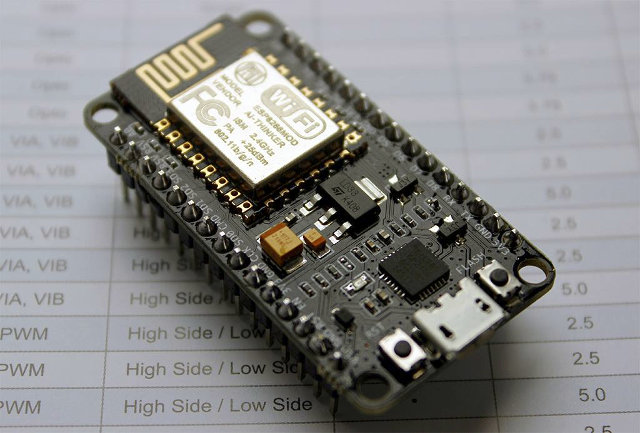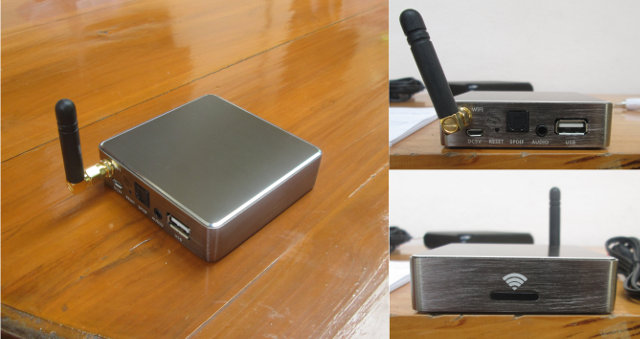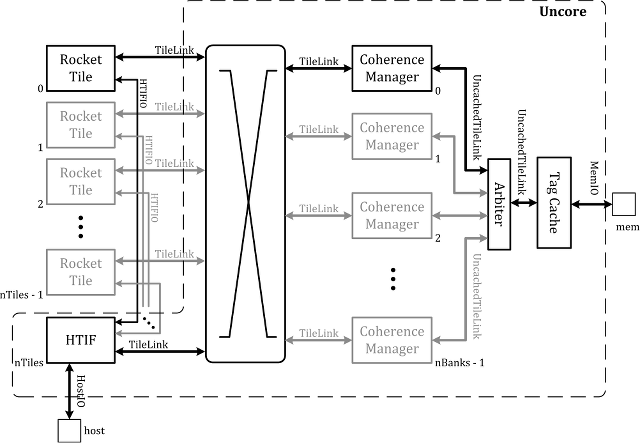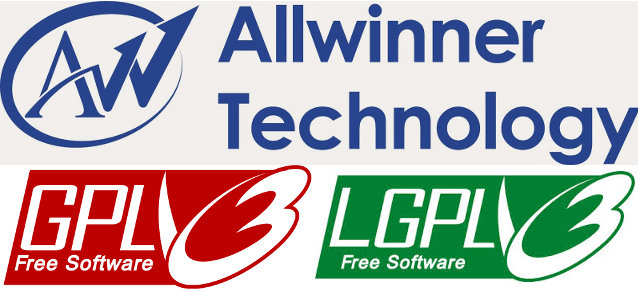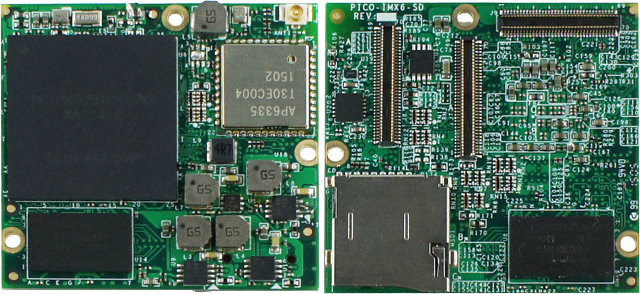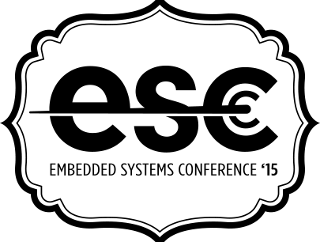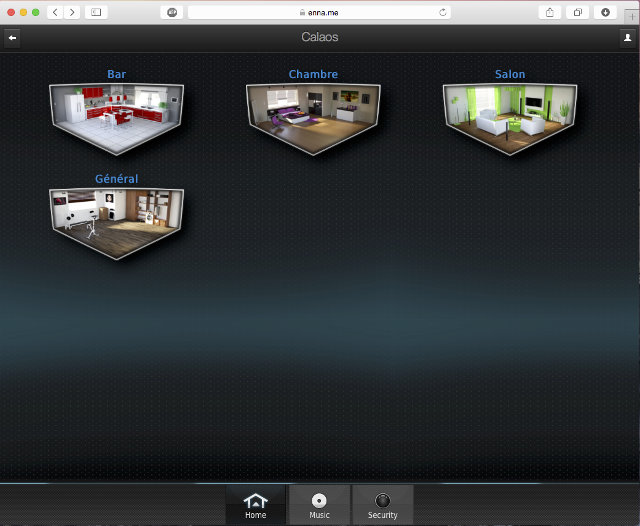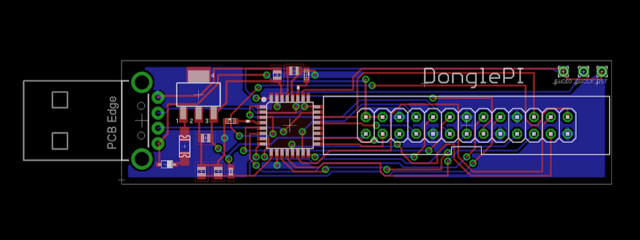NodeMCU is a LUA based interactive firmware for Expressif ESP8622 Wi-Fi SoC, as well as an open source hardware board that contrary to the $3 ESP8266 Wi-Fi modules includes a CP2102 TTL to USB chip for programming and debugging, is breadboard-friendly, and can simply be powered via its micro USB port. Let’s checkout the hardware first. The latest version of the board (V1.0) has the following specifications and features: Wi-Fi Module – ESP-12E module similar to ESP-12 module but with 6 extra GPIOs. USB – micro USB port for power, programming and debugging Headers – 2x 2.54mm 15-pin header with access to GPIOs, SPI, UART, ADC, and power pins Misc – Reset and Flash buttons Power – 5V via micro USB port Dimensions – 49 x 24.5 x 13mm The hardware documentation for the board can be found on nodemcu-devkit repo, including schematics and PCB layout designed with Altium Designer, […]
RaidSonic Releases Firmware and Source Code for Atheros AR9331 Wi-Fi Audio Streamers
RaidSonic is a German company releasing products such as media players and multimedia accessories under their ICY BOX brand. One of those products is ICY Box IB-MP401Air music streaming received based on Atheros AR9331, and that looks very similar to SoundMate M2 I reviewed last year. But if you look on their product page, you’ll find out a few download links: ICY BOX IB-MP401Air (multilang) – The Quick Start Guide and User’s manual in English and German IB-MP401Air (Source code) – a 648 MB rar file with source code for U-boot and OpenWRT IB-MP401Air (Firmware) – The firmware IB-MP401Air (Open Source Software) – Just the open source licenses So I’ve downloaded the source code file (IB-MP401Air_Sources_and%20License_Terms.rar) to have a look. It has two compressed files, one with the license, and IB-MP401Air_Sources.tar.gz with the source code.
|
1 2 3 4 5 6 7 |
tar xzvf IB-MP401Air_Sources.tar.gz cd dns320B_GPL20150212/ ls -l total 12 -rwxr--r-- 1 jaufranc jaufranc 1400 Apr 16 16:49 building-the-firmware.txt drwxr-xr-x 14 jaufranc jaufranc 4096 Feb 12 10:54 dns320B_GPL20150212 -rwxr--r-- 1 jaufranc jaufranc 925 Feb 12 08:25 making-u-boot.txt |
The file showing how to build the firmware (OpenWRT) explains you should not use […]
lowRISC Open Source SoC Project Announces its First Release with Tutorials for Simulators and Zedboard
lowRISC project aims to produce a completely open-source SoC (System-on-Chip) based on the 64-bit RISC-V instruction set architecture, as well as a corresponding development board, thus eventually producing a fully open hardware systems. The project has now announced its first release “tagged memory preview release” with a tutorial explaining how this has all been designed, and how to run simulations with software tools, or FPGA boards such as Zedboard. The project is based on Rocket core, written in Chisel language by the RISC-V team at UC Berkeley. Chisel can generate code to produce a cycle-accurate C++ emulator, Verilog optimised for FPGAs or Verilog for use in an ASIC flow.If you want to try it out, you’ll need a Linux machine, preferably running Ubuntu 14.04 64-bit, with GNU GCC 4.8 installed, and follow the tutorial in order to get the source code, and build tools such as riscv64-unknown-elf-gcc compiler, and […]
Allwinner CedarX Media Codec Library GPL/LGPL Compliance Update
Last month, I wrote about potential open source licenses and VP6 copyright infringement by Allwinner with their CedarX media codec library, and then since there’s been a few developments. First, Allwinner sent me an email saying they’ve now updated Cedarx library and referring my previous article. Here’s an extract: Here, I have some update of the Allwinner’s open-source status. We have done a lot of discussion with the developers from the linux-sunxi communication about the software license of CedarX. For each question or requirement asked by the developers, Allwinner has identify and try to give the best solution. Now, we believe Allwinner’s CedarX license is fully compliant and resolves concerns from the community. And you can take the announcement https://www.mail-archive.com/linux-sunxi@googlegroups.com/msg10597.html as a reference. Allwinner is always supporting the open-source, and try to do better and better. You can see some update on the github https://github.com/allwinner-zh, and some feedback from developers: […]
TechNexion Introduces Intel Edison Compatible PICO-iMX6 SoM and DWARF Board
Intel Edison is a board made for wearables featuring an SoC with Intel Atom and Quark CPU cores. TechNexion, an embedded systems company based in Taiwan, has decided to make a mechanically and electrically compatible system-on-module featuring Frescale i.MX6 Solo or Duallite ARM Cortex A9 processor called PICO-iMX6. The company is also providing a PICO-DWARF baseboard that’s both compatible with PICO-iMX6 SoM and Edison board. DWARF stands for “Drones, Wearables, Appliances, Robotics and Fun”, so that pretty much explains what the platform is for. PICO-iMX6 System-on-Module Two version of the modules are available: PICO-iMX6-SD and PICO-iMX6-EMMC, the former with a micro SD slot for storage, and the latter a 4GB eMMC. Both share the followings specifications: SoC – Freescale i.MX6 Solo / Duallite single/dual core ARM Cortex A9 @ 1Ghz with Vivante GC880 3D GPU and Vivante GC320 2D GPU (Composition) System Memory – 512MB or 1GB DDR3 Storage – […]
Embedded Systems Conference 2015 Schedule – May 6-7, 2015
The Embedded Systems Conference took the name “Design West” for a couple of years, but this year, there’s no mention of Design West, and the Embedded System Conference 2015 will take place in Boston, MA, US on May 6-7, 2015. The 2-day event will have a demo hall, and well as sessions divided into 8 tracks: Connected Devices and the IoT Embedded Software Design Hardware: Design, I/O and Interfacing Prototyping Embedded Systems Design Software: Design, Languages, & Quality Fantastical Theater Teardowns The full schedule has now been posted, and I’ll build a virtual schedule with some of the sessions provided. Wednesday May 6, 2015 8:00 – 8:45 – Understanding Google/Nest Thread by Michael Anderson, Chief Scientist, The PTR Group, Inc. The IoT will live or die based on its connectivity. In examining existing wireless protocols, Google/Nest found most of them lacking. In order to address the needs for low-power wireless […]
Calaos is an Open Source Home Automation Suite for Raspberry Pi, Allwinner A10/A20 and x86 Platforms
Calaos is a Linux based home automation software released under GPLv3 license that works on Raspberry Pi, some Allwinner platforms like Cubiebaord 1/2, Mele A1000(G)/A2000, as well as x86 / amd64 hardware platforms that allows you control switches & lights in the rooms of your home or office, control your music, and manage security cameras.. The developers have recently released Calaos v2.0, the first stable release, so it’s a good time to have a look. The software stack is comprised of 6 main components: Calaos Server – Daemon that exports the state of the house via a JSON protocol. It can currently manage the following hardware components and protocols: Wago’s PLC, with digital or analog I/O, DALI or DMX light bus IPX800 web relay board GCE Electronics Eco Devices used to monitor power consumption. Web API 1-Wire, X10 Zibase I/O GPIO (Linux based GPIO, for direct use of RaspberryPI GPIO […]
DonglePi is a USB Dongle with a Raspberry Pi Header for your PC
While the newer Raspberry Pi A+, B+ and B2 boards feature the new 40-pin connector, the Raspberry Pi boards Model A and B have a 26-pin expansion header, but both are use to access GPIOs, UART, SPI, I2C and interface with external hardware, and many add-ons boards have been developed for the Raspberry Pi. But what if you’d like to use R-Pi add-ons board on your PC, or instead you are developing your own add-on board, but would like to do so directly on your PC for convenience? DonglePi is the answer. It’s a small USB dongle with Atmel SAMD21 MCU and a 26-pin Raspberry Pi compatible header, that you could use connect to your Android/Linux/Windows PC to play with GPIO, I2C, SPI, Serial, PWM just like on a Raspberry Pi, and using RPi/GPIO or smbus Python libraries for programming. The project is still in development, and so far most […]


